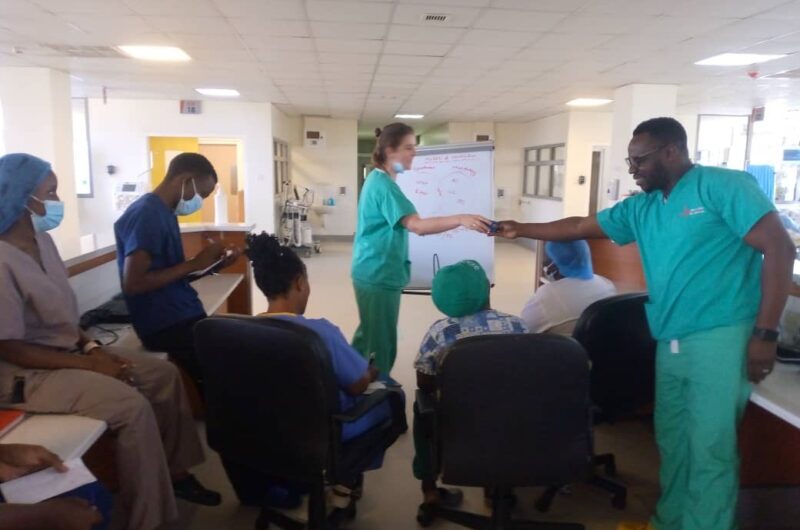Critical Care Practice Development Nurse at Addenbrooke’s Hospital, Livi Rees joined the SCALE Critical Care Project in Kampala for a month to help deliver and embed learning that will strengthen patient care in adult intensive care services.
Here they reflect on their experience in the Adult Intensive Care Unit at Mulago National Referral Hospital and the Maternal Intensive Care Unit at Kawempe National Referral Hospital.
“While this wasn’t the first global health project I have undertaken, it was the first since specialising in practice development. It has given me the opportunity to reflect on how I have developed professionally over the six years since I went to Myanmar as part of the Cambridge-Yangon Trauma Intervention Partnership, and how I could apply what I learnt there to this project. I think that global health work challenges your established patterns of working and teaches you to apply your skills in a different way. I find this very satisfying and always return to work with a renewed enthusiasm for what I do.
For this placement, I was able to draw on my experience from eight years in ICU, two years as charge nurse and one year as practice development nurse, as well as the previous global health work I’ve done. I spent the first week of my placement delivering simulation-based teaching at Mulago Hospital, and the following three weeks providing bedside teaching at both Mulago and Kawempe Hospital, including the development of a ventilator care bundle at Mulago and setting up a nurse-led audit.
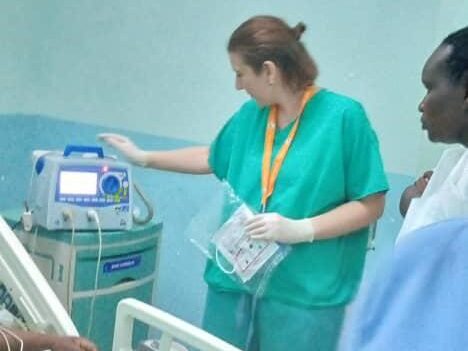
Teaching defibrillation at Kawempe Hospital.
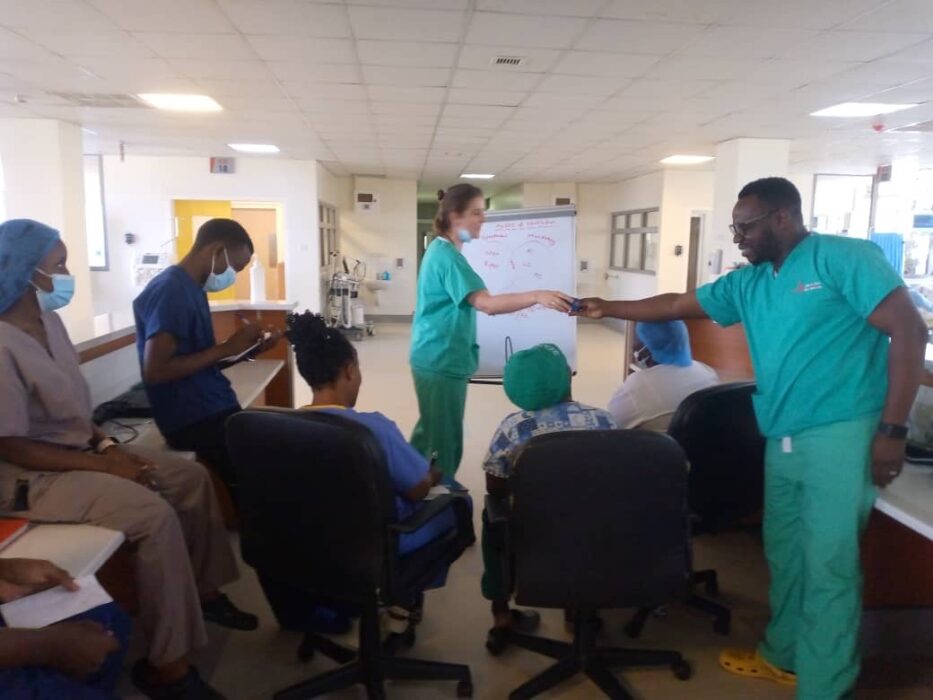
Getting local staff to teach alongside me – despite thinking they couldn’t!
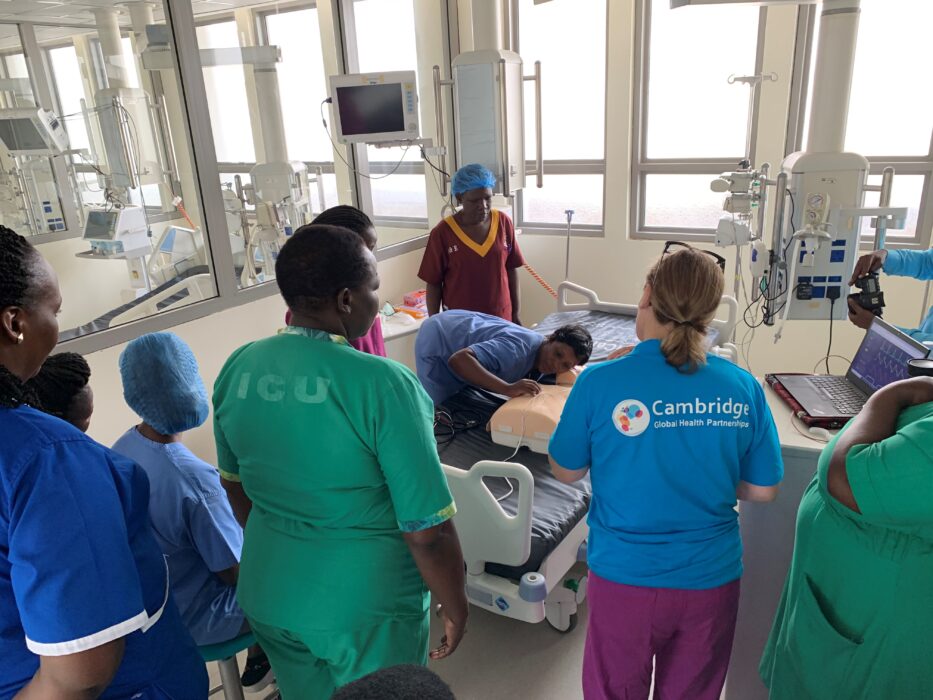
Simulation training during the first week with Lisa Enoch, Education Lead Critical Care.
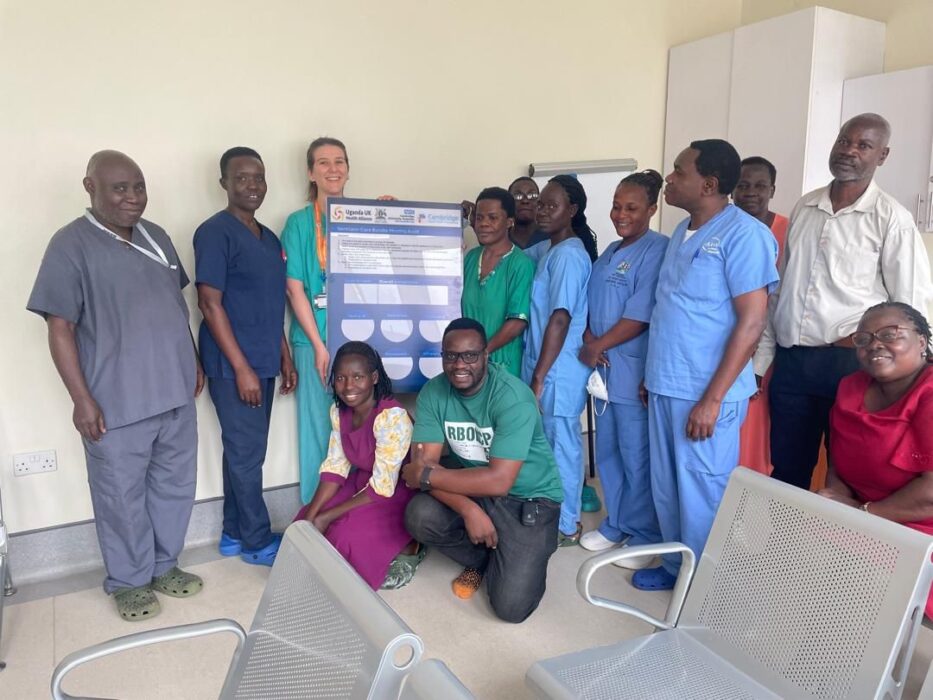
The whole team were very proud of their poster to display the results of the ventilator care bundle audits.
Making an impact
The use of a ventilator care bundle has a well evidenced impact on outcomes for intensive care patients. The majority of the elements of the bundle were already being carried out by the staff in Mulago, but there was no standardisation and no accountability for whether this is done. Formalisation of the bundle coupled with a monthly audit to ensure its effective implementation should have a greater impact on patient outcomes.
It also has the significance of demonstrating to staff that the care they deliver is important enough to audit and that small interventions can have a big impact on patients’ recovery. This is particularly needed in this setting as resources limit care more than knowledge, and this can result in staff feeling very disheartened that they know what to do but can’t do it.
I would absolutely recommend global health work to my colleagues. I think that we underestimate the value of cultural intelligence in the UK, and with an ever-expanding global workforce this is becoming more and more important to be able to properly train and support new staff within the NHS.
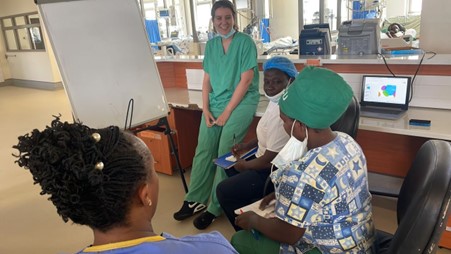
Challenges and rewards
There wasn’t always clear direction from the two hospitals as to what areas they would like teaching to focus on, making it challenging to know which topics to prioritise. It was also difficult to implement changes that needed the approval of the Mulago ICU consultant, for example, earlier approval of the ventilator care bundle policy would have been useful to allow us to do more teaching on it to embed it effectively.
Despite the challenges, the enthusiastic attitude towards change was very different to the UK and was very refreshing! It was also great to see some of their more experienced ICU nurses empowered to teach with me. Mulago Hospital has some team members with a vast amount of knowledge and experience, and it was extremely satisfying to get them up teaching their colleagues alongside me, despite them having said at the start of the placement that they could not teach
It was amazing to be completely and utterly adopted by Sister Martha. She made me fresh fruit juice every single day, took me to different parts of the country to meet her family, and gave me so many peanuts I had to buy a second suitcase (not exaggerating) – she was the perfect host.
I also did some travelling while I was there, I took a three-day safari and saw countless birds and animals I had never seen before.
Learning from others
One thing I was very impressed by was people’s public speaking skills. It seemed to be quite commonplace to ask someone to ‘say a few words’ to mark the beginning/end of a teaching session, a meal, a day in the hospital etc and they would give a long, thoughtful and eloquent speech on the spot with no preparation. I was really impressed by this as it is something that would be a very anxiety inducing experience for me, and it made me reflect on this and want to improve in this area.
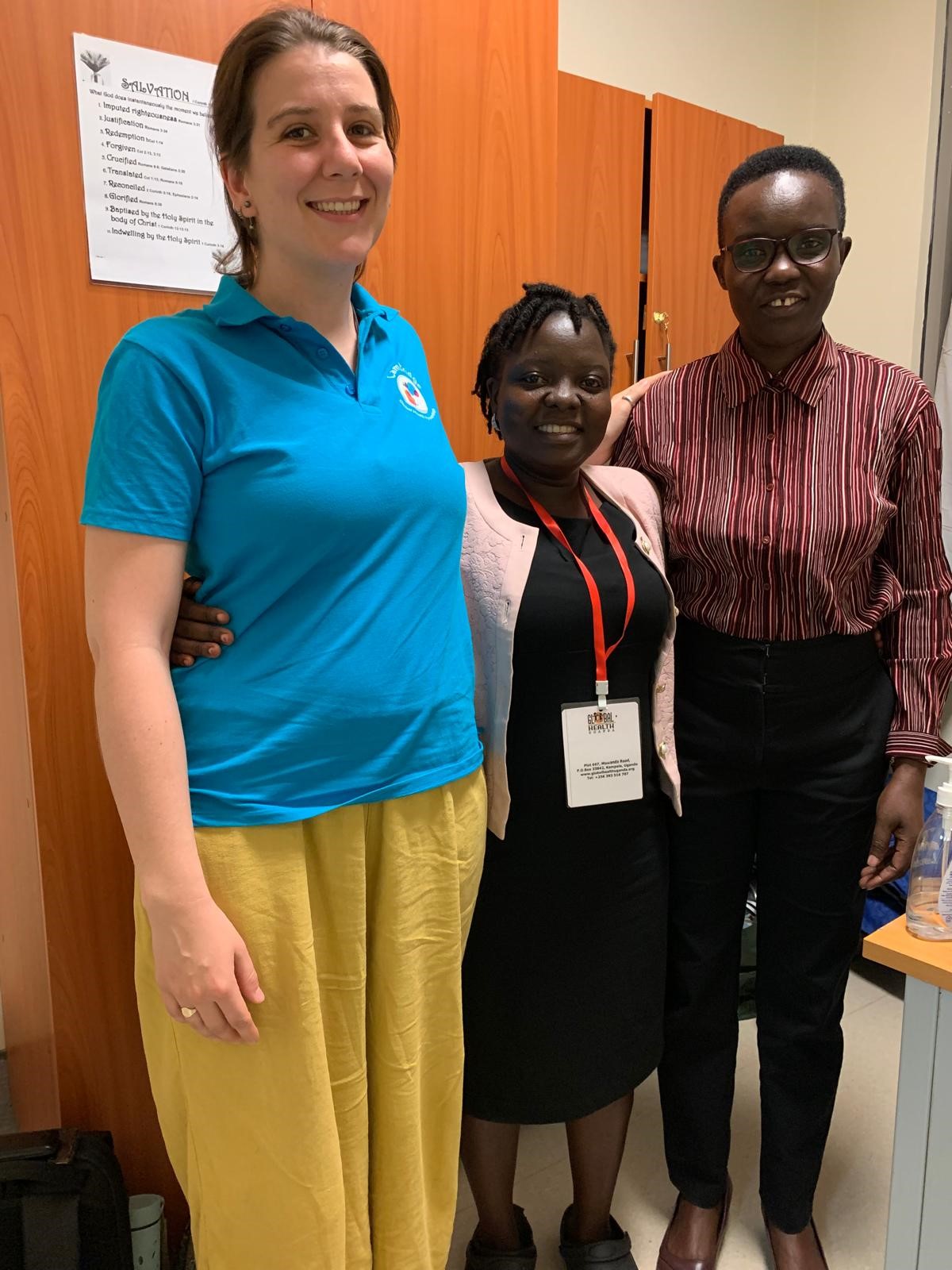
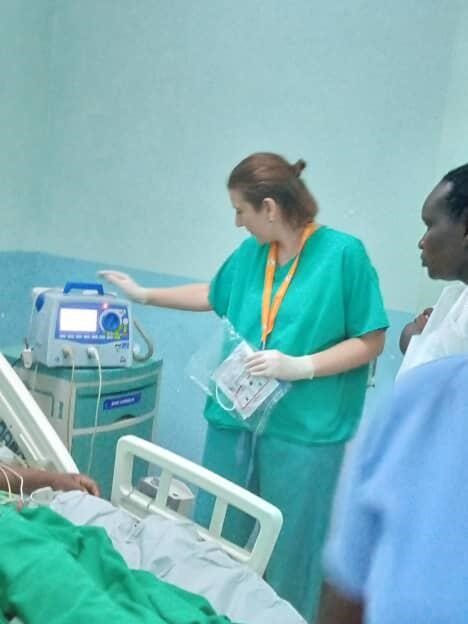
The value of global knowledge
I would absolutely recommend global health work to my colleagues. I think that we underestimate the value of cultural intelligence in the UK, and with an ever-expanding global workforce this is becoming more and more important to be able to properly train and support new staff within the NHS.
Within my team I am one of the link nurses for overseas nurses joining critical care. This trip has increased my compassion for the challenges these staff face when navigating a new culture and joining a completely foreign healthcare system. I would like to do some work to support these staff better, I am still thinking how best this can be done.
Looking ahead I plan to continue my work with the SCALE partnership through my role in practice development, continuing the online teaching sessions with Mbarara hospital and supporting one of the nurses in Mulago to set up an ongoing nursing development programme in their ICU.
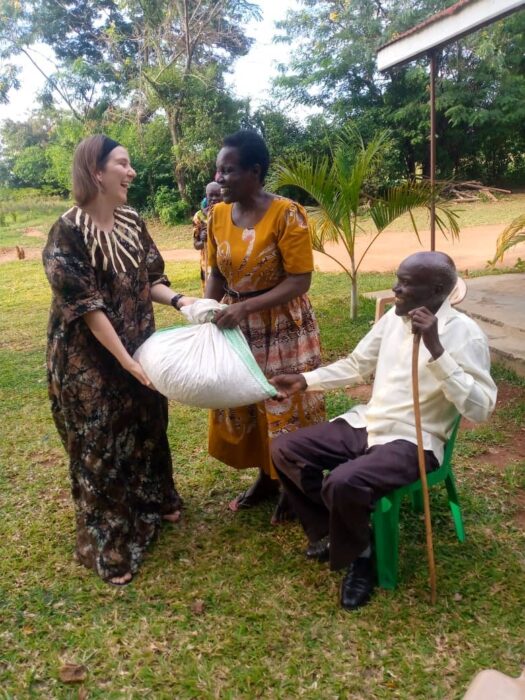
Sister Martha’s family presenting me with a sack of peanuts.
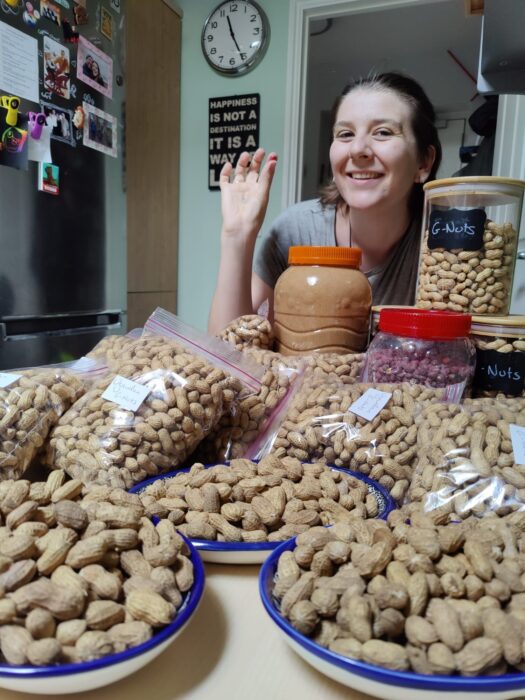
Back home in the UK with my haul of peanuts!
Find out more about the SCALE Critical Care project, or contact us at info@cghp.org.uk
Return to blogs

